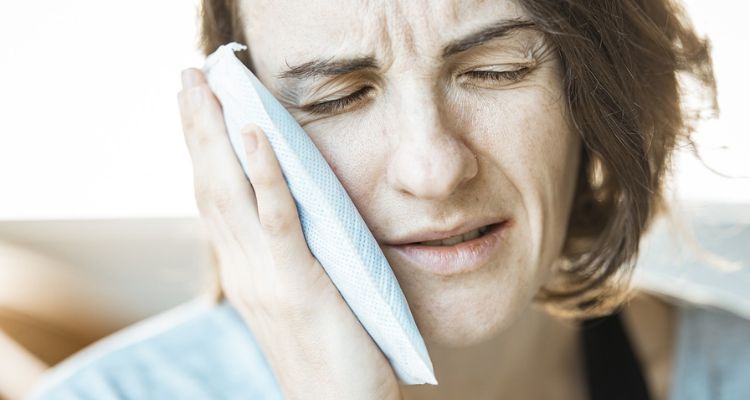Among the most frequent surgical procedures in dentistry, wisdom tooth extraction, also known as third molars, is common.
The final teeth to erupt are the wisdom teeth, which erupt at the backside of the gums. The average person has four wisdom teeth, one in each jaw.
Typically, wisdom teeth begin to erupt during late adolescence or early adulthood. There may not always be enough space in the jaw for the correct eruption of wisdom teeth because the 28 permanent teeth are typically in position.
Wisdom teeth may occasionally emerge entrapped or at a certain angle due to a lack of room. The ultimate solution to getting rid of wisdom teeth is their removal.
After removing their wisdom teeth, some people are in more pain than others. Here are some methods for reducing pain when sleeping.
What is the typical recovery time after wisdom teeth removal?
The recovery time after wisdom teeth removal can vary depending on the difficulty of the extraction. Most people can expect some level of pain, swelling, and bruising for the first 3-4 days. It may take up to 2 weeks for complete healing. Your dentist will advise you on taking proper care to allow the extraction sites to heal. This includes eating soft foods, avoiding certain activities, and taking prescribed pain medication.
How to Sleep With Wisdom Teeth Removal Pain
Take Your Pain Medication
You can take ibuprofen if your doctor hasn’t prescribed other pain relievers. One dose of 400 mg of ibuprofen is superior to one dose of 1,000 mg of Tylenol. According to research, combining ibuprofen with Tylenol is more successful in reducing pain than each drug. Make sure to avoid dosage during the day.

When taking painkillers, follow all dosage directions.
Before the anesthetic wears off, take the pain medicine (at an 8-hour interval). Taking painkillers regularly will enable you to sleep more soundly.
Choose the Right Position
Make your sleeping area as comfortable as possible. Maintaining a cool, dark bedroom and engaging in other activities before bed that promote sleep can help you forget the discomfort.
You must try sleeping with your body and head elevated during the first week. It was recommended that only raising the head with cushions wouldn’t be enough to reduce swelling.
In the initial days, there may be some bleeding at the wound site. This is not of concern, but you need to consult the dentist for excessive bleeding.
However, if your wound is not healing as quickly as it should and the swelling is getting worse, you should go back and consult the dentist or a nearby emergency room to ensure everything is okay and you don’t have any infections.
Elevate Your Head
Gravity can work its magic as you sleep if your head is lifted, which helps to lessen swelling in the jaw region where the operation was performed.
This can lessen any pain or discomfort brought on by any post-operative swelling that might otherwise prevent you from falling asleep at night. Use an additional pillow to elevate your head at night to minimize swelling and improve clotting.
Sleep On Your Side
In comparison to sleeping on the back, lying on your side makes it easier to keep the head raised on the pillow. Sleeping on the side allows you to sleep comfortably while keeping the wound clean, which helps with immediate healing (also check the top rated mattresses for side sleepers).
Apply Ice
According to a 2019 Cryotherapy study, ice used during the first few days following wisdom tooth extraction can help minimize swelling. For 10–20 minutes, place an ice pack on your jaw.

Your gums will feel less pain, and it will be easier to fall asleep if you apply a cold compress to your cheek. Before you go to bed, ice the cheek at the extraction point for at least 30 minutes.
Before using the ice pack on your face, carefully wrap it in a cloth.
Sleep with the ice pack on your cheek if your nap lasts 30 minutes or less. To avoid an uncomfortable cold sensation on your cheek, do not sleep while keeping an ice pack on.
After the extraction procedure, avoid heating the area with a heat source.
Staying Hydrated
Consuming cool water will help keep your mouth moisturized and stop more bleeding. However, avoid eating or drinking anything that hurts your mouth; wait until the pain has faded and drinking is bearable.
After surgery, refrain from using a straw for a week. Avoid consuming hot beverages or food while you are recovering. Consume only soft, chilled foods and liquids that you can tolerate.
What Should I Avoid When Sleeping After Wisdom Teeth Removal?
It’s crucial to use caution after recovering from wisdom teeth removal so as not to disturb the blood clots developing in your wounds, especially during the initial 24 hours. A dry socket is caused by the dislodging or inappropriate development of a clot. This can happen between days 3 and 5 after wisdom tooth removal and is among the most frequent problems.
To reduce your chances of problems, avoid the following traits:
Sleeping Flat On Your Back
To encourage injury recovery, the RICE strategy should be followed, including rest, ice, compression, or elevation. When sleeping, use an additional pillow to raise and support the head.
Maintain a 45-degree angle with your upper body and elevate your head using cushions. Your wounds will swell less and throb less.
Brushing Around Your Wounds
To prevent your blood clot from being disturbed, it is advisable to refrain from brushing the area around the surgery site for the first 24 hours.

This could disturb the blood clot in the wound and make you bleed again. You won’t be able to fall asleep easily due to the pain or bleeding. If your gums start bleeding, put on gauze and be careful to remove the gauze before going to bed. Remove the gauze and avoid going to bed until the bleeding has stopped, which takes around 30 minutes.
After 24 hours, carefully rinse the removal site with an antimicrobial mouthwash. Do this repeatedly over the following three days, especially after meals. As a mouthwash, you may also use warm saline rinses to lessen gum inflammation and stiffness.
Drinking Alcohol or Smoking
Consuming alcoholic beverages or smoking might impair the body’s ability to recover. It’s best to refrain from these behaviors for at least 24 hours following surgery until you’re completely healed.
Avoid using tobacco products or smoking. After removing your wisdom teeth, consuming tobacco products or smoking increases your chance of developing problems. The healing process will slow down, and swelling in your mouth will rise if you use these products.
It is advised to wait two weeks after quitting smoking or using tobacco products before starting up again. You will experience severe discomfort from any infection, worsening your sleep.
Additional Ways to Improve Your Sleep
For your body to have the time it requires to repair, it’s crucial to obtain plenty of sleep.
Modify Your Mattress Outfit
A few extra strategies help you sleep better after wisdom tooth extraction.
Another solution is to get a temporary new bed set and improve your mattress set.
It’s possible to enhance support rapidly by using mattress toppers. To suit the post-procedure sleeping patterns, you could pick a mattress topper as a less expensive option than replacing the entire mattress (check the mattress toppers with great comfort).
You can indeed utilize additional pillows to add further support. Put a pillow under your knees to give more support and relieve back discomfort.
Implement a Weighted Blanket for Relaxation
Weighted blankets are becoming more and more well-liked due to the health benefits that are frequently cited. These blankets, which weigh about 15 pounds on average, have reportedly been shown to improve sleep quality. Weighted blankets can alleviate stress, panic, and sleeplessness (check 7 amazing weighted blankets for anxiety).
Recent wisdom tooth extraction patients benefit from the added weight of a blanket in more aspects than just improving their sleep quality. The blanket’s weight can help others sleep on their backs by gently reminding them to do so and to avoid any excess, unnecessary mobility throughout the night. Today, you can discover a model that is appropriate for post-extraction sleep.
When can I sleep on my side after wisdom tooth extraction?
It’s best to avoid sleeping on the side where your wisdom tooth was removed for at least a week. Sleeping on your side can put pressure on the extraction site, leading to pain and disruption of the blood clot. Sleep propped up with your head elevated for the first few nights. After the first week, you may try slowly progressing to side sleeping as long as it does not cause discomfort. Listen to your body and adjust your sleeping position accordingly.
Conclusion
Following the removal of the wisdom teeth, soreness is typical. You may manage discomfort and swelling while trying to sleep by taking painkillers as directed by your doctor, making your bedroom comfortable, and elevating your head.
You can have a dry socket or an infection if your pain worsens, and you might have swollen lymph nodes in your jaw. Follow these tips and tricks to sleep well after wisdom teeth removal.
References
https://www.ncbi.nlm.nih.gov/pmc/articles/PMC6449133/
https://www.nhs.uk/conditions/wisdom-tooth-removal/
https://www.mayoclinic.org/diseases-conditions/dry-socket/symptoms-causes/syc-20354376
https://www.healthline.com/health/sports-injuries/treatment
https://pubmed.ncbi.nlm.nih.gov/24338830/
Sleep after wisdom teeth removal FAQs
Is It Possible To Sleep on Your Side After The Removal of A Wisdom Tooth?
Sleeping on your side could put more pressure on that injured area and draw more blood, resulting in bleeding and edema. To ensure your head stays higher than your heart as you sleep, try to do so by sleeping on your back. You might want to stay away from resting just on the side of the mouth where the operation was done. Try elevating yourself with pillows and resting in a recliner if your typical position causes discomfort.
How Long Can You Sleep Upright After The Extraction of A Wisdom Tooth?
For how long do you sleep on your back after wisdom teeth exclusion? You've probably heard that this is necessary. Depending on the procedure, you might need to lie upright for a week or 24 hours.
Why Can't I Sleep After Wisdom Teeth Removal?
You might not be able to sleep after wisdom teeth removal due to swelling, inflammation, and pain hindering your sleeping pattern. Crowding, infection, impacted teeth, decay, and gum disease are just a few conditions that may require the removal of wisdom teeth. After wisdom teeth removal, swelling is common and can last from a few days to a week.
A numb mouth and lips is a typical adverse reaction that might happen, which typically lasts approximately a week.
After wisdom teeth extraction, a smaller mouth opening is typical. It may take some time for the jaw bone to become acclimated to the wisdom teeth.
A dry socket, or "alveolar osteitis," may occur after the removal of a wisdom tooth.
What Happens If You Sleep on Your Side After Wisdom Teeth Removal?
Experts do not advise sleeping on the side after wisdom teeth removal. The main cause is edema and inflammation growing while resting in this position. This causes pain and disrupts sleep, which hinders the body's normal healing process. If you sleep on your side, the protective layer, which helps control bleeding, will impact negatively. Therefore, avoid side sleeping after the removal of a wisdom tooth.

